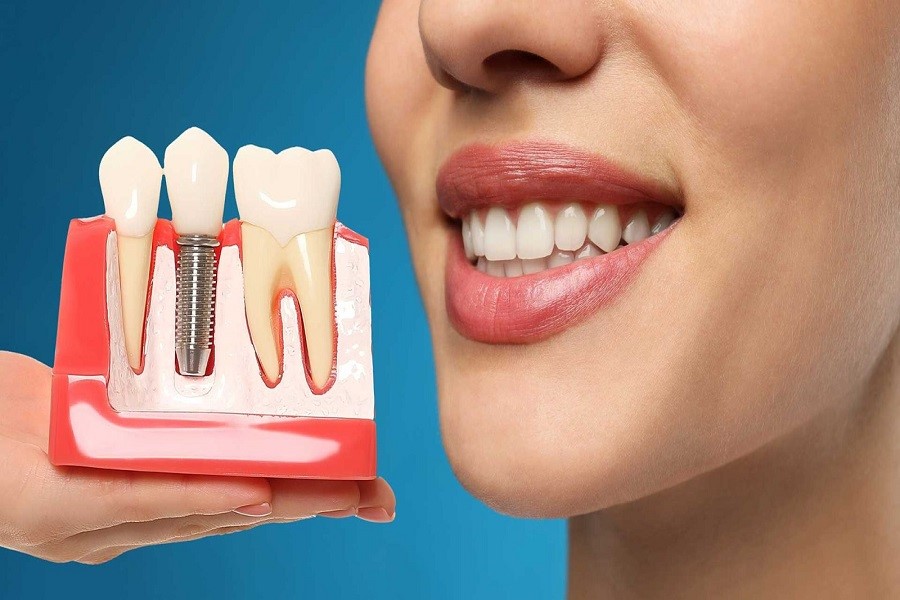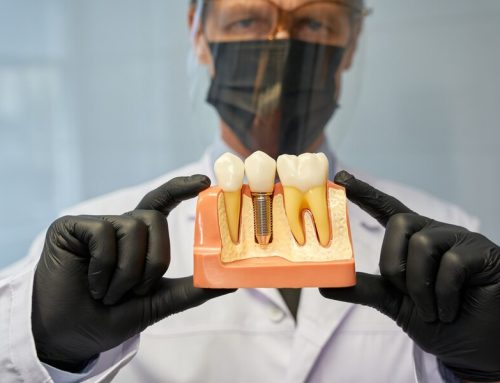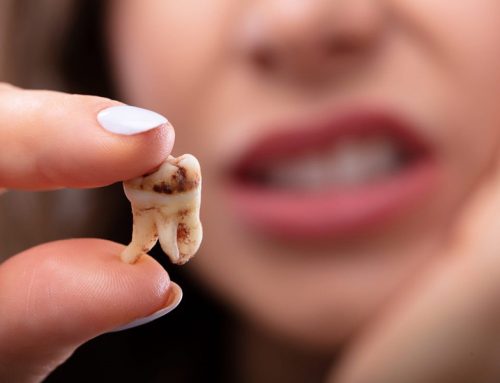Advances in Dental Implants: A Permanent Solution for Missing Teeth
Dental science has made remarkable advancements, and one of its most significant breakthroughs is the use of dental implants as an effective solution for replacing missing teeth. This technology not only restores a beautiful smile but also improves natural tooth functionality. However, despite its many benefits, many people have questions: Can dental implants fail or become damaged? This article explores this question, along with key care tips for maintaining implants and factors affecting their longevity. A deeper understanding of these topics can help you make a confident decision about choosing dental implants.
How Long Do Dental Implants Last?
Dental implants are a permanent solution for missing teeth and, with proper care, can last 20 years or more. Their lifespan depends on various factors, including oral hygiene, lifestyle, jawbone condition, and the type of implant used. Most implants are made of titanium, which naturally fuses with the jawbone, providing strength and durability.
Key Factors for Longevity:
-
Oral hygiene: Regular brushing, flossing, and dental check-ups prevent plaque buildup and infections.
-
Lifestyle habits: Smoking and consuming staining foods/drinks can shorten an implant’s lifespan.
-
Professional care: Routine dental visits help detect and address issues early.
With proper maintenance, implants can last 30+ years.
Why Do Dental Implants Fail?
While implants are designed to be long-lasting, they can fail due to:
-
Poor Osseointegration
-
If the implant doesn’t properly fuse with the jawbone, it may loosen or fail.
-
-
Infection (Peri-Implantitis)
-
Caused by poor oral hygiene, leading to gum inflammation and bone loss around the implant.
-
-
Physical Trauma
-
Accidents or excessive force (e.g., grinding teeth) can damage implants.
-
-
Smoking
-
Nicotine reduces blood flow, slowing healing and increasing infection risks.
-
-
Poor Oral Hygiene
-
Neglecting care leads to plaque buildup, infection, and bone loss.
-
-
Low-Quality Implants
-
Cheap materials or improper design can cause early failure.
-
-
Surgical Errors
-
Incorrect placement or mismatched implant size can lead to complications.
-
How to Prevent Implant Damage
-
Choose a Skilled Dentist
-
Ensure proper placement and high-quality materials.
-
-
Maintain Oral Hygiene
-
Brush, floss, and use antibacterial mouthwash.
-
-
Avoid Harmful Habits
-
Quit smoking and limit hard/sticky foods.
-
-
Regular Check-Ups
-
Early detection of issues prevents major problems.
-
The Role of Oral Hygiene in Implant Health
Good hygiene is critical for implant longevity:
-
Brush gently with a soft toothbrush.
-
Use floss/water flossers to clean around the implant.
-
Antimicrobial mouthwash reduces infection risks.
-
Regular dental cleanings prevent peri-implantitis.
Avoid smoking and sugary foods to protect your implant.
Do Low-Quality Implants Fail Sooner?
Yes. Cheap implants often use inferior materials (e.g., stainless steel instead of titanium) and may:
-
Corrode or break under pressure.
-
Fail to integrate with the jawbone.
-
Cause infections due to poor design.
Always choose certified, high-quality implants.
What to Do If an Implant Fails?
-
Consult a Dentist Immediately
-
X-rays/CT scans assess damage.
-
-
Treat Infections
-
Antibiotics or laser therapy may help.
-
-
Repair or Replace
-
Minor damage: Replace the crown/abutment.
-
Severe cases: Remove and reinstall the implant.
-
-
Bone Grafting (If Needed)
-
Strengthens the jaw for a new implant.
-
Dental Implants vs. Other Tooth Replacement Options
| Method | Lifespan | Pros & Cons |
| Dental Implant | 20–30+ years | – Most natural, preserves jawbone. – Higher upfront cost but long-term value. |
| Dentures | 5–10 years | – Affordable but uncomfortable. – Requires adhesives/bone loss over time. |
| Dental Bridge | 5–15 years | – Less invasive than implants. – Damages adjacent teeth; shorter lifespan. |
Conclusion: Implants are the best long-term investment for functionality, aesthetics, and durability.
Final Thoughts
Dental implants offer a lifelike, permanent solution for missing teeth, but their success depends on:
✔ High-quality materials.
✔ Expert placement.
✔ Consistent oral care.
For more details on implants and potential challenges, consult your dentist.







Leave A Comment